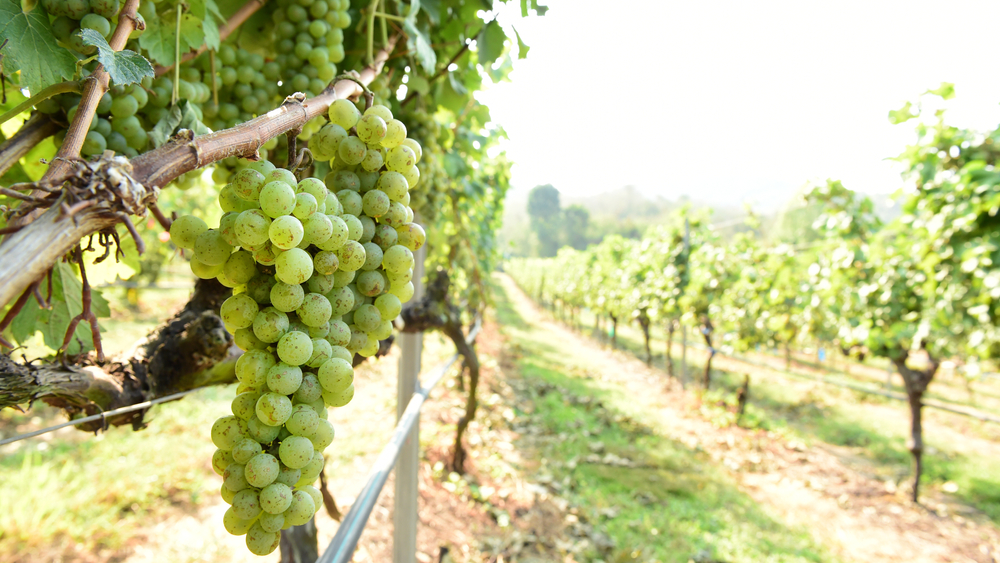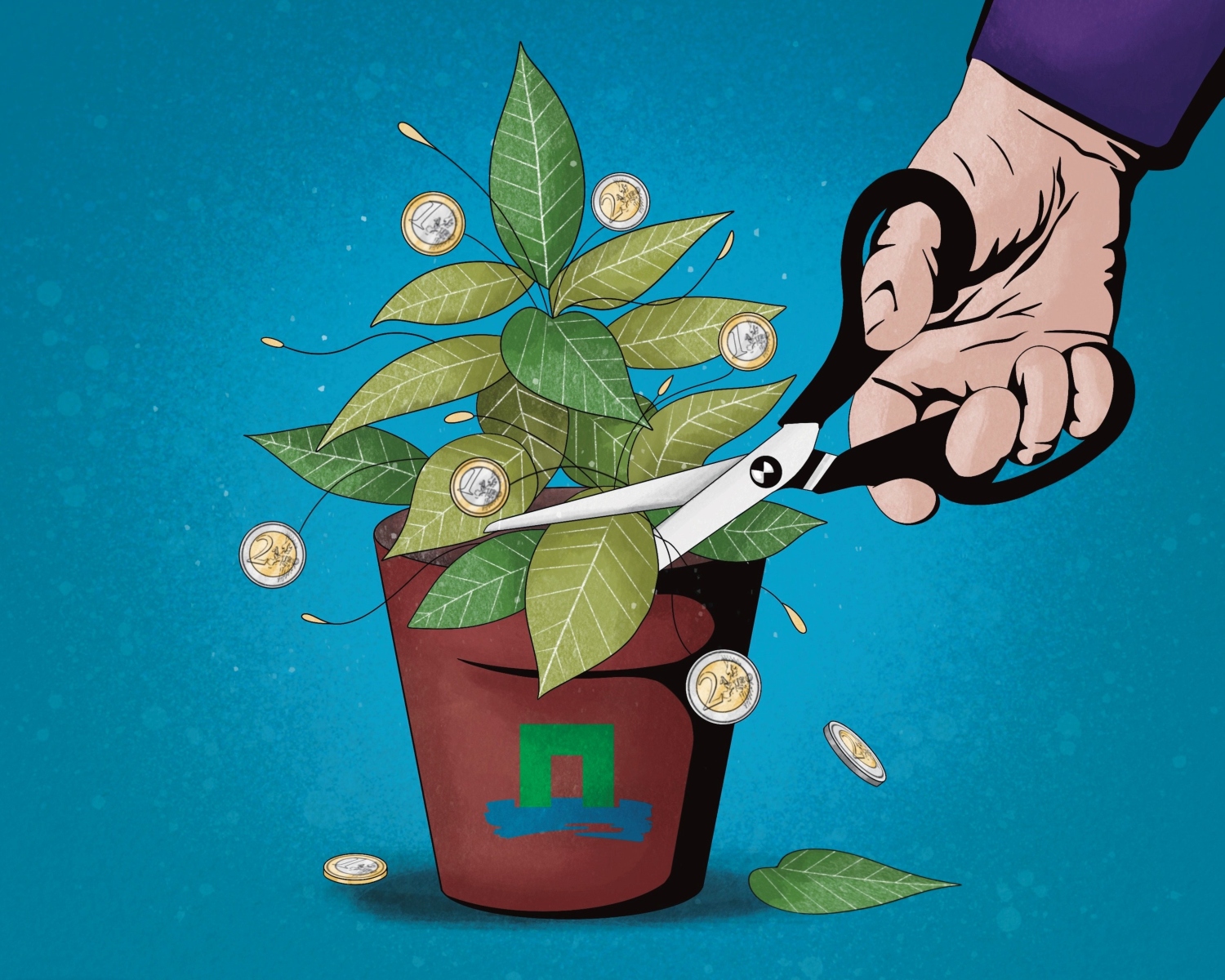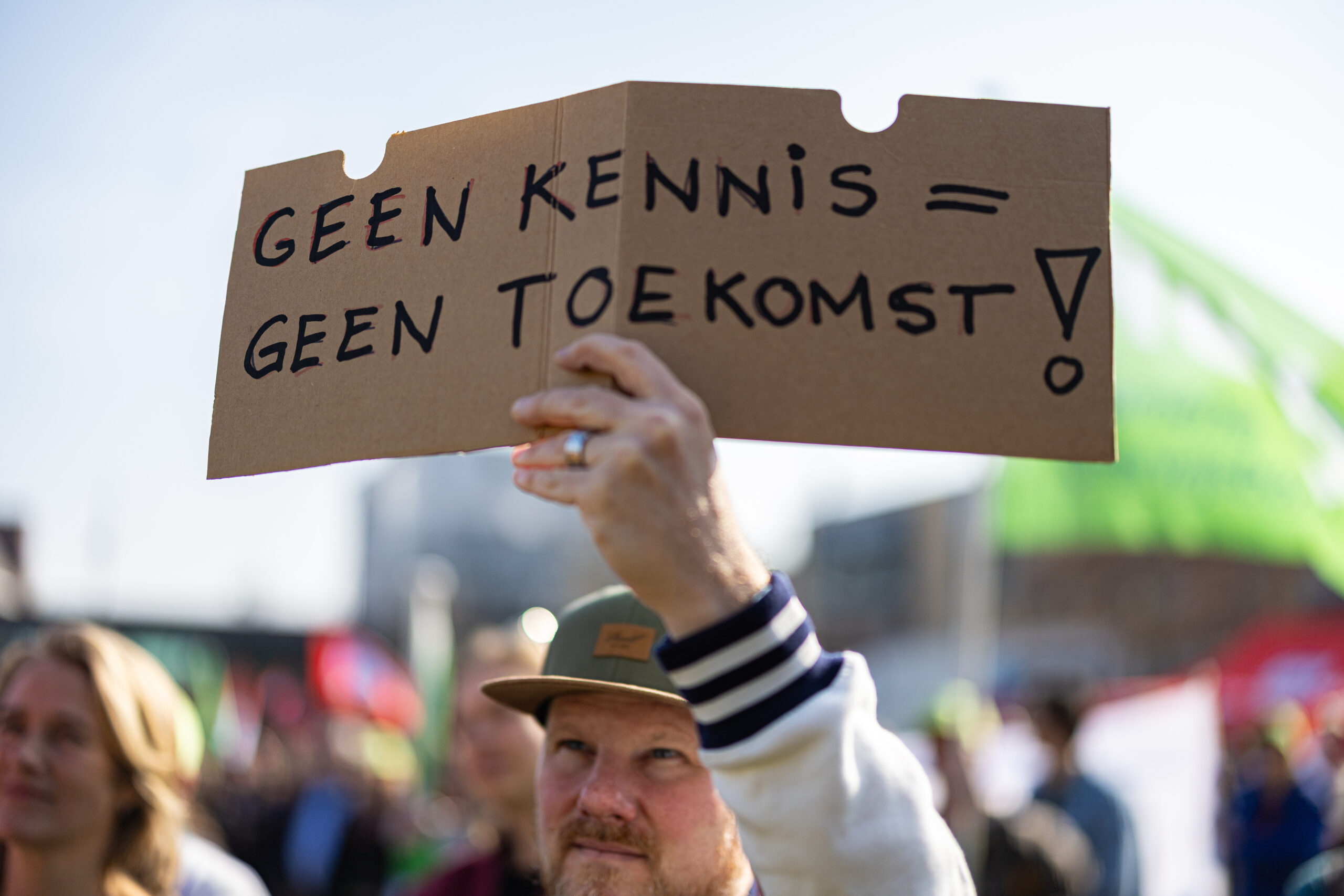The European Commission’s sustainable agriculture policy, Farm to Fork, causes lower yields, increased pricing, less export and more import of food. Thus reveals research conducted by Wageningen Economic Research that was commissioned by interest organisations CropLive Europe and Copa-Cogeca.
The European Commission wishes to slash the use of pesticides by half and reduce the use of artificial fertiliser and nitrogen, as well as increase the organic agriculture share to 25 per cent. With these measures, the commission aims to counter climate change and the loss of biodiversity.
10 crops
WUR studied the economic implications of the Farm to Fork policy. The study was commissioned by CropLive Europe, the association of crop protection businesses. The researchers conducted case studies on 25 farms in Europe and assessed the implications the policy has on 10 crops, among which wheat, maise, sugar beets, tomatoes, olives, apples and grapes. They also calculated the effect on the yield of a 50 per cent reduction in crop protection, 20 per cent less artificial fertiliser, 25 per cent organic agriculture and 10 per cent flowering field margins.
Decreased production
The measures cause an average decrease in production of between 10 and 20 per cent in the EU, the researchers conclude. Fewer pesticides in the apple farming business cause an even higher drop in production as well as smaller fruits with damaged skin. Grain is susceptible to diseases and plagues. With the resulting decrease in production and an unaltered demand, this would force Europe to increase its food import.
As an alternative, the EU could embrace new breeding methods, with which plague resistant crops may be developed so that the yields remain constant while the use of pesticides is diminished, the impact study states.
Livestock farming
By commission of Copa-Cogeca, the association of European farmers and agricultural cooperatives, other scientists from Wageningen Economic Research studied the economic effects of the Farm to Fork strategy on the livestock sector. They assessed the effect of nitrogen losses and reduced use of fertilisers and pesticides on the production of dairy, beef, pork and poultry.
Their conclusion is that the policy will cause a 10 to 15 per cent decrease in livestock farming in Europe, particularly due to the 50 per cent nitrogen reduction goal. To achieve that goal, the production of manure and the cattle population must be reduced. Moreover, the price of feed is likely to increase, but these and other costs are difficult to estimate. All in all, the farmers’ revenues will decrease, making voluntary participation in the Farm to Fork policy unlikely.
Income
One case study shows a particularly dramatic drop in the dairy farmers’ income, by as much as 20 per cent. In contrast, the incomes in the calf, pig and poultry sectors will likely increase due to the expected increase in prices. However, if the price of meat shows a smaller increase than the price of milk, the sustainability measures will affect the meat and dairy sectors in equal measure. A balanced system of subsidies may mitigate the negative effects of the Farm to Fork strategies on the livestock sector, the researchers state.
Criticism
Protest groups and leftist politicians have criticised the two studies. According to member of the EU parliament Bas Eickhout, the research’s primary goal is to maintain the status quo, and it completely ignores the food transition that is currently underway.
Researcher Roel Jongeneel, involved in both studies, denies the studies are lobby documents. ‘The first study, commissioned by CropLife Europe, is an extensive and in-depth investigation, in which farmers’ behaviour and the possible collateral effects of the measures were included through case studies. Possible alternatives the farmers may have if pesticides are slashed by 50 per cent were considered at the level of the individual farms. The second study, commissioned by Copa-Cogeca, is shorter and more perfunctory and mainly based on literature. There, we focused on the effect the measures have on the farmers’ income.’
Clients
The studies differ due to the different demands the clients had, Jongeneel explains. ‘CropLife was interested in the impact at the sector level, while Copa-Cogeca was particularly interested in the effects on farmers’ incomes. We have not included the ecological advantages of the Farm to Fork policy.’ He does not know what the clients’ sentiments are with regard to the conclusions. ‘If we conclude that this policy could benefit the financial position of half of the livestock farmers, I don’t know whether Copa-Cogeca is happy with such a conclusion. The results may be more positive than they expected.’

 Photo Shutterstock
Photo Shutterstock 

